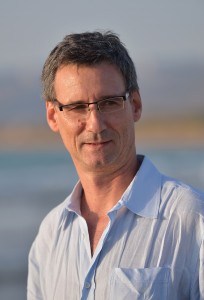
מתוך פילוסופית ההוראה של פרופ’ מרק:
Education should be a subject close to everyone’s heart, but there is no magic recipe. Each one of us has his own way of teaching. My way of teaching Chemistry, particularly Organic Chemistry, is connected to the way I see the subject – it is much more than a wonderful science which allows the creation of complex molecular architecture from simple molecules. Thus, my way of teaching is to create this dual excitation between science and its beauty.
The question is how to pass on this idea of art in basic science. I see teaching very much as a formalized act of storytelling, always emphasizing the elegance of the transformations, and I often use fictive images to help memorize. If you listen to researchers in my symposia, the best speakers are those who will captivate you by telling you about their own research and how each discovery was made. The beauty of their science will capture you.
They will never launch into a crude and elaborate analysis of statistical results. Teaching Organic Chemistry is like that, and it lends itself particularly well to the story-telling approach because the material builds on itself. The impact on the student is enhanced when the lecture is given as a narrative, where the information is clear and presented in a softer, story-like manner rather than dry learning. This also allows the lecturer not just to present coherent information but also to keep a captive audience. For the first time, students are exposed to the idea that science is also an art and the exposure is done in an extended narrative fashion.
The relationship I always try to establish with my students is an important part of the way I teach. The ultimate goal of the lecturer is to communicate new information to students, to teach them how to think and not just memorize facts. This can be made more efficient when both the teacher and the students enjoy the material they cover. Combined, these aspects allow a teacher to determine how a certain group of students will learn best. In my teaching experience, efficient learning by students consists of the combination of formal lecture periods and smaller discussion sections.
I used to prepare a PowerPoint presentation for each course, which I distributed to the students a few days before my lesson, but I quickly realized that such a presentation is an unimaginative strategy which destroys the critical minds. Thus, though students still have the technical support, I now teach on the board and my courses are always combined with some improvisation. I never teach two courses, on the same subject, similarly. They are formed and take shape based on the interactions with the students. The teaching load of our students is very heavy and it is imperative that students have a clear understanding of the topic.
I’m against the multiple-choice test method in my final exams, since I do not want to constrain the students’ imaginations. In every test I give, there are always questions that give freedom of thought and which cover all topics learned during the semester. I am quite often delighted by the anwers.
Another aspect which really helps students to ask questions and to actively participate in the course, is when they feel that the teacher is “with then”. I’m deliberately very attentive to their needs. I believe that one of the most important principles of education is the teacher-student relationship
. I make special efforts to be available for my students at all times, to be an informal advisor and to share with them my experiences, attitudes and values. This contact is one of the most important factors in students’ motivation and involvement; it enhances students’ intellectual commitment and encourages them to think about their own values and future plans.
